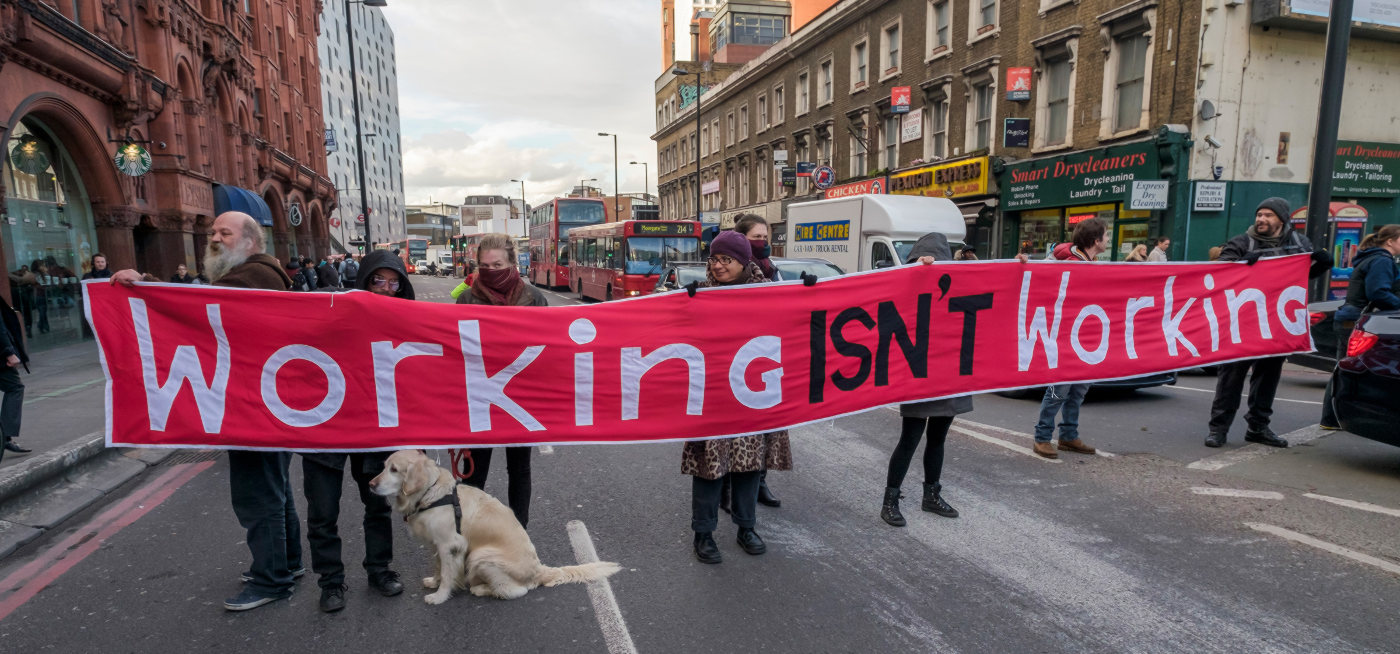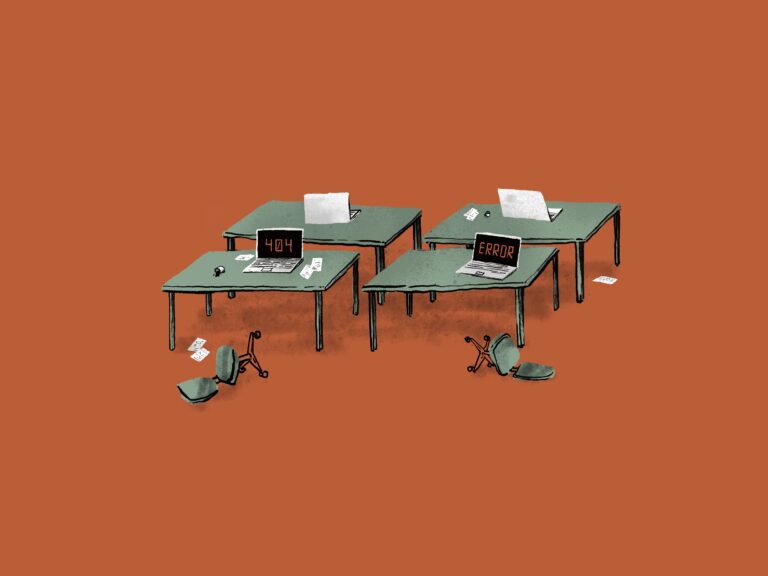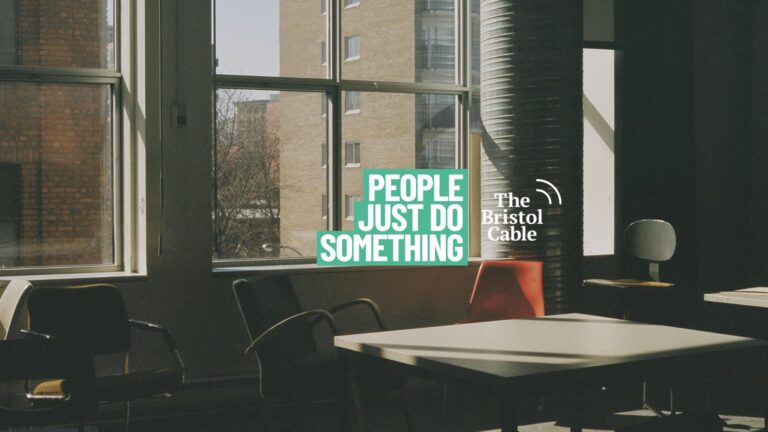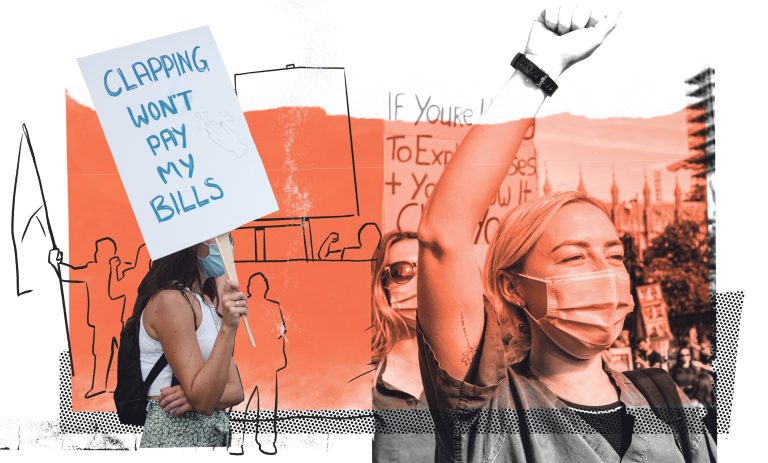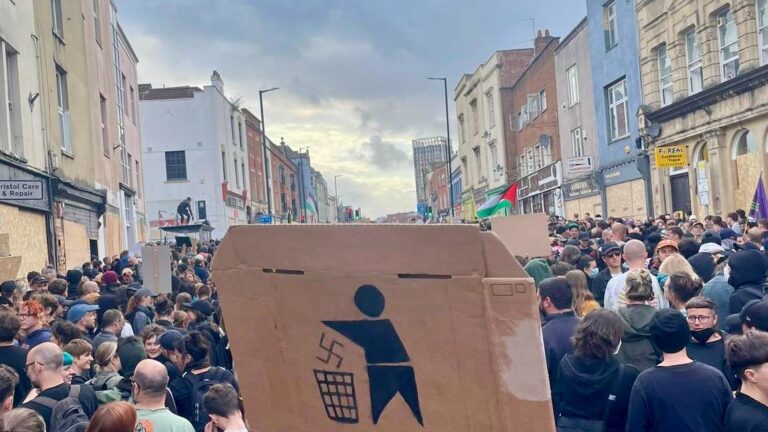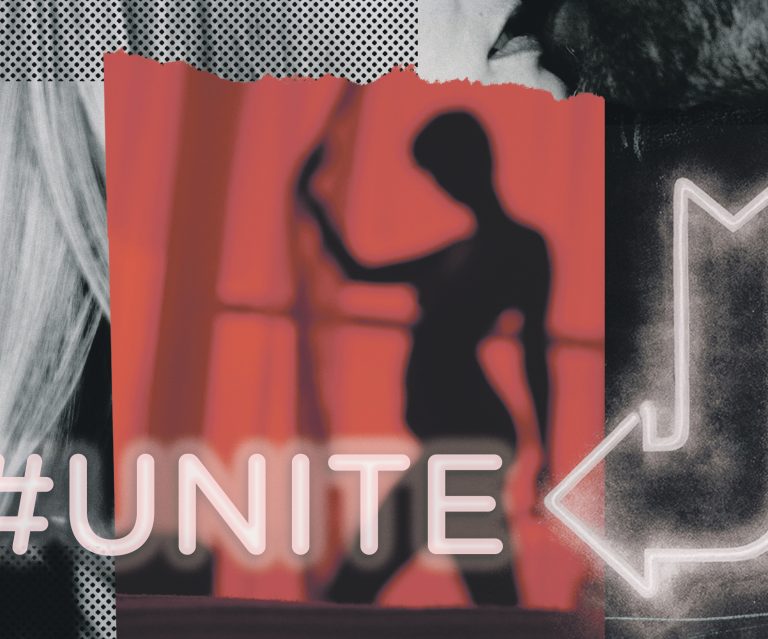Opinions: Working isn’t working
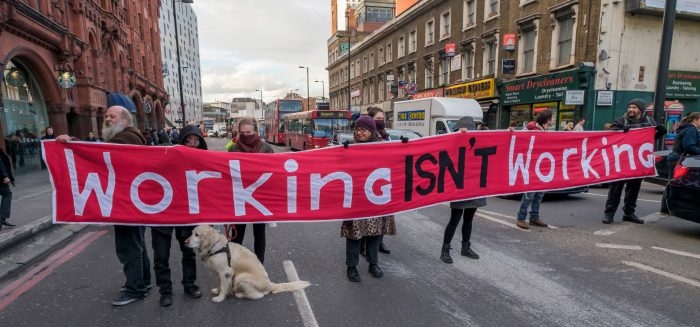
A counsellor challenges the current political agenda on work and the government push to get people into jobs under the guise of a health intervention.
Words: Debbie Porteous
Photo: Peter Marshall (mylondondiary.co.uk)
Karl Marx once described work as “a life affirming activity that unleashes our creativity”. How many of us are lucky enough to say this about the work that we do? Working as a counsellor, I do feel this about my work. It’s amazing to be able to work alongside another person with an emerging expansive purpose, always unique, and led by the client’s direction, pace and needs.
But currently, in government-funded talking therapies, there are more and more boxes to tick and goals to achieve – and not necessarily the goals of clients. The government agenda is intruding on the therapeutic space in an alarming manner.
Now, the government is rolling out its national Work and Health Programme, which is due to launch in autumn this year. This welfare-to-work programme targets people with health conditions or disabilities and people who have been out of the job market for a long time. In order to push it through, the government has made implementing the programme part of the West of England devolution deal.
A lot of us are by now all too familiar with benefit sanctions, distressing Work Capability Assessments and withdrawn disability support, either because of the experiences of friends or family or from following the experiences of Daniel Blake onscreen. Let’s not forget the United Nations Human Rights Committee findings published November 2016 highlighting “grave or systematic violations of rights of people with disabilities” and the increasing evidence of death by welfare reform.
Therapy is now being used to get people into work under the guise of a health intervention: the DWP in health centres and therapists in job centres. An analysis of the problems with this not-so-subtle coercion has been dubbed ‘psychocompulsion’, in which all of the problems of health and society are located within the individual, ignoring the current political and economic context.
Reading about the Work and Health Programme, I see at the centre an ambitious statement. The government wants to start “a wide-ranging debate about recognising the value of work as a health outcome, to change perceptions and culture around health, work and disability” (emphasis added). It’s the polar opposite of the inspiring Marx quote where work is itself a healthy, life-affirming activity.
The World Health Organisation defines health as “a state of complete physical, mental, and social wellbeing”. It’s impossible to square this with the types of jobs the government want people who are coming off benefits to do: zero-hours contracts; minimum wage; no job security. Indeed it is fair to say that the conditions of work itself are increasingly something that are causing ill health and distress. To borrow a phrase I’ve seen on placards from the Mental Health Resistance Network, ‘working isn’t working’.
It’s time to question what ‘work’ really is. Is it being a part of the labour force, the labour market, part of the means of production of GDP? Some of the most amazing work I know is unseen and unheard, part of a different value system outside of the neoliberal “no such thing as society” dogma: caring for people young and old, working for family, education, justice, creating art, community…
I love how young singer songwriter Grace Petrie captures this in her lyrics: “..we’ve been told, since we were four years old, that employment is the goal, fill your wallet not your soul, use your life to gather gold”.
I’m concerned how all this will unfold in Bristol and the West of England as part of the devolution deal. There’s an opportunity to limit the damage, I believe, if we vote in Lesley Mansell – a socially-aware metro mayor candidate – on 4 May. And we all need to be aware how this is being framed. This is not just about what it means to be healthy. As disability and mental health activist Denise McKenna puts it:
“..I am also fighting for what it means to be human and to be civilised, for how we value ourselves and each other. I am fighting against the lie that the only value to be found in our lives is as workers making the rich even richer. We have higher purpose than that.”
